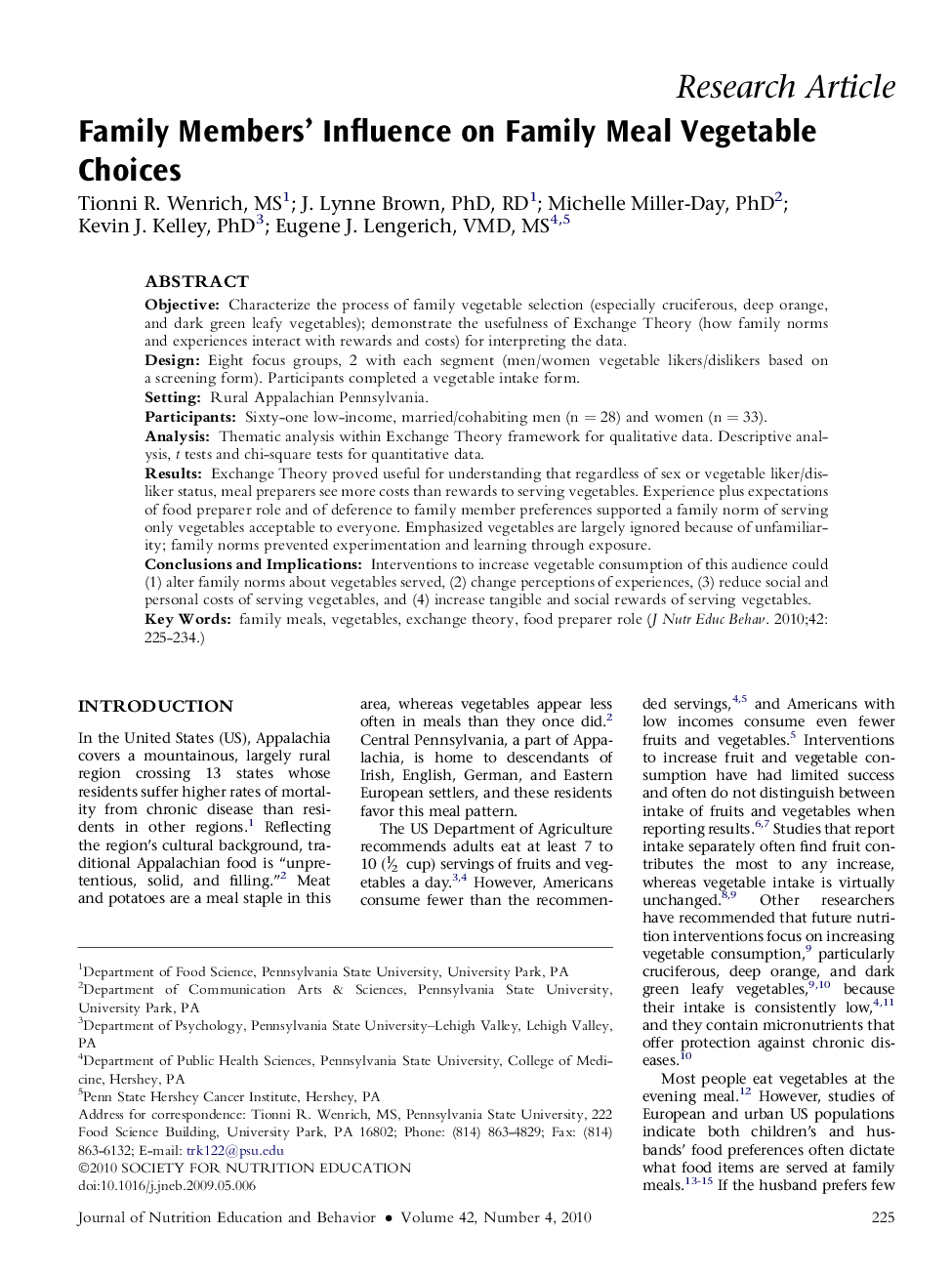| Article ID | Journal | Published Year | Pages | File Type |
|---|---|---|---|---|
| 361953 | Journal of Nutrition Education and Behavior | 2010 | 10 Pages |
ObjectiveCharacterize the process of family vegetable selection (especially cruciferous, deep orange, and dark green leafy vegetables); demonstrate the usefulness of Exchange Theory (how family norms and experiences interact with rewards and costs) for interpreting the data.DesignEight focus groups, 2 with each segment (men/women vegetable likers/dislikers based on a screening form). Participants completed a vegetable intake form.SettingRural Appalachian Pennsylvania.ParticipantsSixty-one low-income, married/cohabiting men (n = 28) and women (n = 33).AnalysisThematic analysis within Exchange Theory framework for qualitative data. Descriptive analysis, t tests and chi-square tests for quantitative data.ResultsExchange Theory proved useful for understanding that regardless of sex or vegetable liker/disliker status, meal preparers see more costs than rewards to serving vegetables. Experience plus expectations of food preparer role and of deference to family member preferences supported a family norm of serving only vegetables acceptable to everyone. Emphasized vegetables are largely ignored because of unfamiliarity; family norms prevented experimentation and learning through exposure.Conclusions and ImplicationsInterventions to increase vegetable consumption of this audience could (1) alter family norms about vegetables served, (2) change perceptions of experiences, (3) reduce social and personal costs of serving vegetables, and (4) increase tangible and social rewards of serving vegetables.
